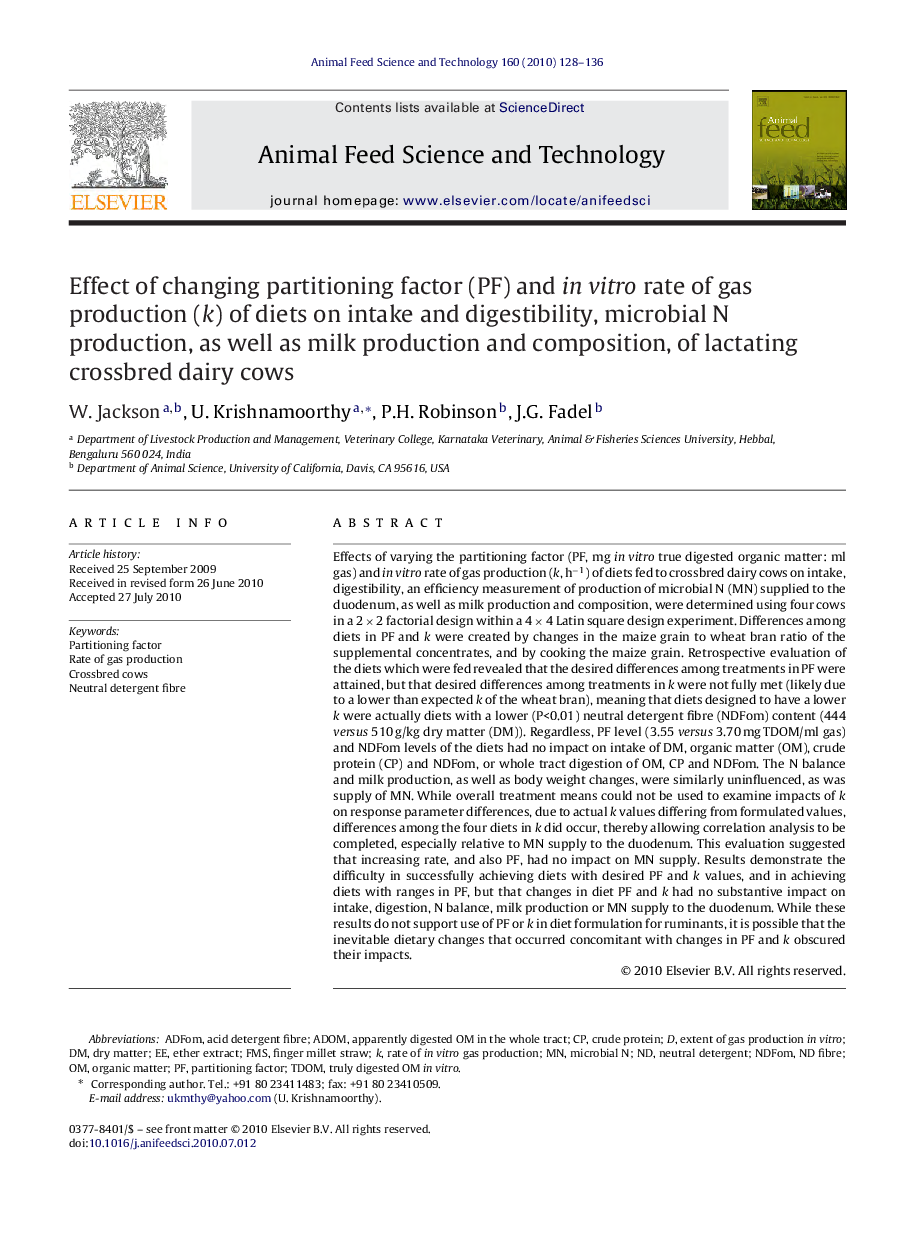| Article ID | Journal | Published Year | Pages | File Type |
|---|---|---|---|---|
| 2420095 | Animal Feed Science and Technology | 2010 | 9 Pages |
Effects of varying the partitioning factor (PF, mg in vitro true digested organic matter: ml gas) and in vitro rate of gas production (k, h−1) of diets fed to crossbred dairy cows on intake, digestibility, an efficiency measurement of production of microbial N (MN) supplied to the duodenum, as well as milk production and composition, were determined using four cows in a 2 × 2 factorial design within a 4 × 4 Latin square design experiment. Differences among diets in PF and k were created by changes in the maize grain to wheat bran ratio of the supplemental concentrates, and by cooking the maize grain. Retrospective evaluation of the diets which were fed revealed that the desired differences among treatments in PF were attained, but that desired differences among treatments in k were not fully met (likely due to a lower than expected k of the wheat bran), meaning that diets designed to have a lower k were actually diets with a lower (P<0.01) neutral detergent fibre (NDFom) content (444 versus 510 g/kg dry matter (DM)). Regardless, PF level (3.55 versus 3.70 mg TDOM/ml gas) and NDFom levels of the diets had no impact on intake of DM, organic matter (OM), crude protein (CP) and NDFom, or whole tract digestion of OM, CP and NDFom. The N balance and milk production, as well as body weight changes, were similarly uninfluenced, as was supply of MN. While overall treatment means could not be used to examine impacts of k on response parameter differences, due to actual k values differing from formulated values, differences among the four diets in k did occur, thereby allowing correlation analysis to be completed, especially relative to MN supply to the duodenum. This evaluation suggested that increasing rate, and also PF, had no impact on MN supply. Results demonstrate the difficulty in successfully achieving diets with desired PF and k values, and in achieving diets with ranges in PF, but that changes in diet PF and k had no substantive impact on intake, digestion, N balance, milk production or MN supply to the duodenum. While these results do not support use of PF or k in diet formulation for ruminants, it is possible that the inevitable dietary changes that occurred concomitant with changes in PF and k obscured their impacts.
